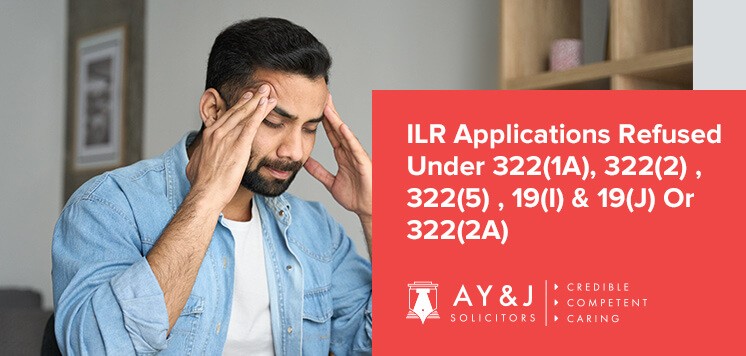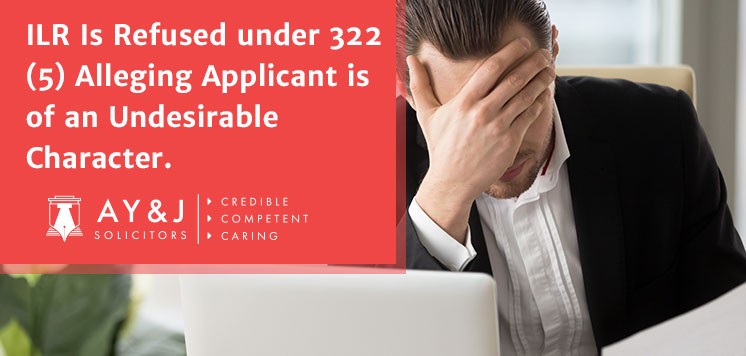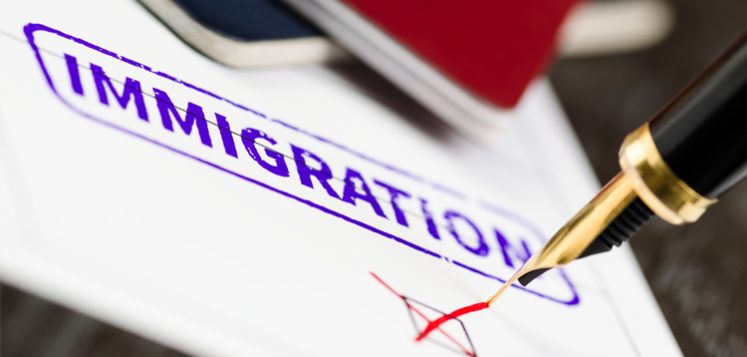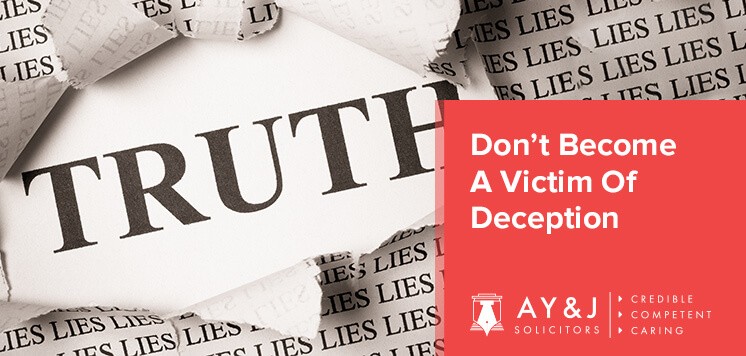Disclaimer: The information in this blog is accurate as of its publication date. Any updates after that date are not reflected here.
Being able to finally apply for Indefinite Leave to Remain (ILR) in the UK can be an exciting time for migrants. After years of hard work and loyalty to the UK, it’s time to receive a settlement and be one step closer to British Citizenship. For those who have chosen to make their living in the foreign country, achieving settlement can provide a sense of belonging and commitment that may have been lacking.
Unfortunately, the ILR application is not always a straightforward process. The combination of UK Visas and Immigration (UKVI) being inundated with applications and the current government’s crackdown on immigration means that ILR applications can be refused (or significantly delayed) for almost any error or discrepancy.
The British government is committed to reducing net migration to the tens of thousands. The latest figures show it has fallen by 106,000 to 230,000 in the 12 months to June 2017, a significant drop (mainly caused by Brexit driving EEA nationals to leave the country) but still a long way off five figures. One of the most controversial barriers to achieving ILR is the minimum income of £35,000 which most Tier 2 migrants must earn before they are entitled to settle in the UK. Not only does this policy deny many workers the opportunity to achieve a settlement and ultimately British Citizenship, but it also robs employers of talented staff who have to return home after five years.
Another common reason for ILR being refused is the applicant being accused of deception, as illustrated in the case study below.
Table of Contents
Case Study of ILR refusal under Tier 1 Visa route
Following the completion of five years of continuous leave to remain as a Tier 1 (General), Mr & Mrs D applied for settlement. However, the Secretary of State refused our client’s ILR application stating in the refusal letter that enquires were made with the HMRC and as per the records held by the HMRC, no earnings had been declared for one of the employment our client had been working with during the financial year 2010/11 for which it was claimed as previous earning points during the first Tier 1 (General). Because of these concerns, the Secretary of State also did not accept that the income for the settlement application was from genuine employment and no points were awarded under paragraph 245CD(b) and (g) of the Rules. Furthermore, our client was alleged of deception under Paragraph 322 (5) of the Immigration Rules.
We assisted the client with Administrative Review (AR), submission of a Pre-Action Letter and Judicial Review (JR) application.
Because of our hard work, the Home Office quashed the original ILR decision, granting the client and her dependent settlement and paid the costs incurred during the JR process. This family received their ILR and their reinstatement of their right to work within 6 months from the date of their ILR refusal.
What is ‘deception’ or ‘undesirable character’ in ILR applications?
Deception in the context of the general grounds for refusal is usually defined as:
“Where false representations have been made or false documents or information have been submitted (whether or not material to the application, and whether or not to the applicant’s knowledge), or material facts have not been disclosed, in relation to the application or in order to obtain documents from the Secretary of State or a third party required in support of the application.”
UKVI has adopted the term ‘deception’ or ‘undesirable character’ as a blanket explanation for any discrepancy in an application, specified in paragraph 322(1A), 322(2), 322(5) or 322(2A) of the Immigration Rules. This can be almost anything from a difference between income stated on the application versus income reported to HMRC, or claims of tax not paid. According to UKVI guidance, any discrepancy can be deemed deceptive.
Deception is one of the most serious breaches of immigration law and can lead to serious consequences including a criminal conviction and curtailment of leave to remain in the country.
What could be considered a deception in UK Immigration Application?
False representation – these can be made in writing (on the application form or in supporting documents) or during the giving of oral evidence. In Adedoyin v Secretary of State for the Home Department (SSHD) and AA (Nigeria) v SSHD it was held by the Court of Appeal that dishonesty is required for false representation and innocent mistakes will not qualify.
False documentation – a false document was defined by Lord Bassam in the March 2008 House of Lords debate as ‘a document that is forged or has been altered to give false information’. It is important to note that if false documents are submitted, deception will be found whether or not the documents are essential to the application.
Non-disclosure of material facts – failing to disclose facts that are relevant to the ILR application (i.e. material) can lead to the application being refused on the grounds of deception. In Ahmed (general grounds of refusal—material non-disclosure) Pakistan the Upper Tribunal confirmed that dishonesty must be present, whether on behalf of the applicant or someone else.
How can I avoid an allegation of deception when applying for ILR?
Taking care to ensure that every single item in your application is correct is the only option to avoid being accused of deception and having your ILR application refused. In particular, ensure all information is reported consistently throughout the application.
The most desirable outcome is to have your application approved the first time. Consider working with an expert immigration solicitor who can review all of your documentation and ensure the application is ready for prompt approval from UKVI.
If deception is alleged by UKVI, it is for their officials to prove it has occurred.
How can A Y & J Solicitors help?
Has your ILR application been refused? We’re here to help you. A Y & J Solicitors are specialist immigration solicitors who are passionate about ensuring our client’s success in all areas related to UKVI.
Our team will collate the evidence required to defend an allegation of deception in relation to your ILR application, including obtaining evidence from third parties such as banks and the HMRC. We will also check to make sure UKVI officials have followed their published guidelines. If we cannot negotiate with UKVI to have your application approved, we can advise and represent you in judicial review proceedings.
For expert assistance with any immigration law areas, contact us today on +44 20 7404 7933 or at contact@ayjsolicitors.com.
Disclaimer: No material/information provided on this website should be construed as legal advice. Readers should seek an appropriate professional advice for their immigration matters.









